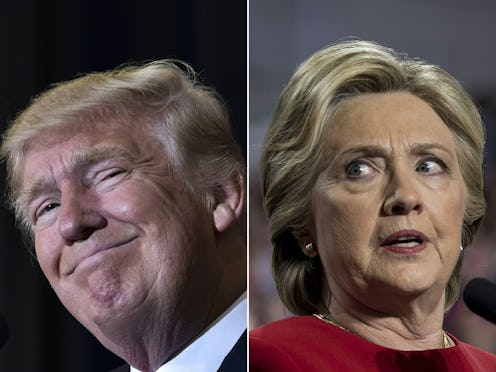News
Maybe We Really Don't Understand Politics At All
I was dead wrong about the 2016 presidential race. In my defense, basically everyone who covers politics was dead wrong about the 2016 presidential election. The majority of the significant 2016 presidential elections polls were off in a big way. Prediction mavens who were cocky in their certainty are poised to eat more than crow.
It's worth looking at the whole of 2016 and understanding something big. It wasn't just the polls that were off. It was our complete understanding of how American politics works that failed us. All of the assumptions of political scientists, of pundits, of anyone who has ever observed a presidential election, were completely off.
The political media spends much of its election coverage focusing on events — major speeches, the debates, the conventions. Throughout the entirety of the presidential race, many of the major events that supposedly mattered seemed to go to Clinton. She had a much more traditionally successful convention — powerful primetime speakers and a message of party unity, compared to Trump's chaotic convention where his main rival failed to endorse him and his dark speech turned many voters off. Similarly, Clinton won the debates by a pretty unprecedented margin, according to FiveThirtyEight Nate Silver's assessment. Headlines about Trump included him not having paid taxes for 18 years and boasting about sexually assaulting women on a hot mic tape. These were supposed to be game-changers, but they didn't lead to Clinton winning.
Institutional support is often assumed to be a powerful force in politics. Clinton won the primary after receiving the most endorsements from party leaders of any candidate in history. She had a top-notch team of well-liked politicians stumping for her, including Joe Biden, Bill Clinton, Michelle Obama, Elizabeth Warren, Bernie Sanders and the sitting president of the United States. In comparison, Trump was rejected by an unprecedented group of Republican leaders. Normally political science suggests that an outgoing president's approval rating correlates closely to the incumbent party keeping the White House. Obama is more popular now than Reagan in 1988. Oh well.
At the beginning of the 2016 presidential race, there were expectations that big money would rule the election. With the rise of Super PACs and skilled political data mining operations, it seemed like the election would be decided based on behind-the-scenes operations, not the people. But then Trump, who spent barely any money on the primary race, clobbered candidates who raised millions like Jeb Bush and Ted Cruz. Clinton outraised Trump by massive margins throughout the campaign, and spent that money on powerful TV ads and a top-notch voter targeting and get-out-the-vote effort, while Trump spurned data completely and spent more money on hats than polling.
While the numbers now show Clinton is winning the popular vote, it's still closer than many of us were predicted based on the way Trump ran his campaign, namely like a train on fire running off the rails, with one wrong move and distraction after the next. At least, that's how many of us covering politics viewed it.
In every conceivable way, the 2016 election destroyed conventional wisdom. That was sorta the point. To be honest, you should maybe not take anything I write seriously, because I clearly know nothing. But it's pretty clear that nobody else does either.
